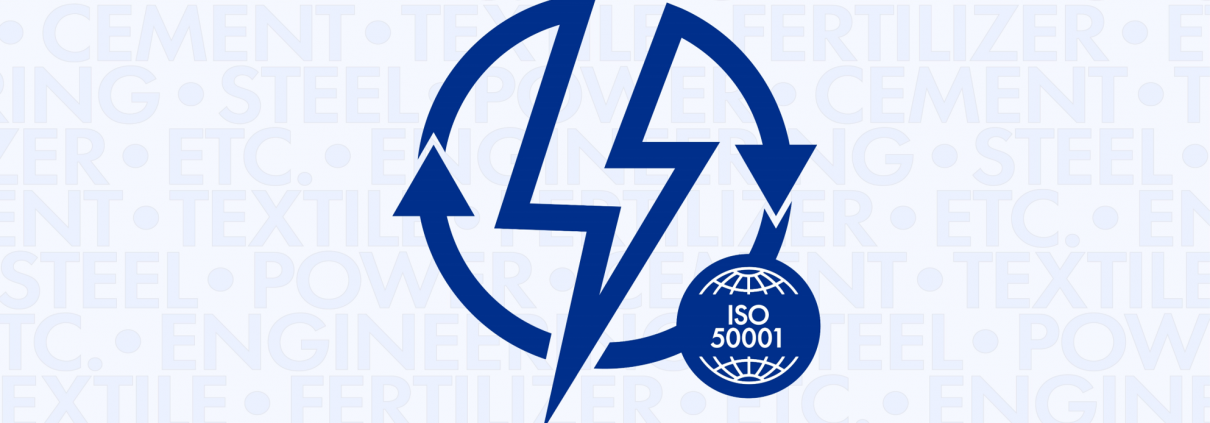ISO 50001 Energy Management System: Overview, Benefits, & Certification
In today’s world, organizations face increasing pressure to reduce energy consumption and improve their environmental performance. ISO 50001, the international standard for energy management systems, provides a framework for organizations to establish, implement, maintain, and improve energy management. In this blog, we will explore about ISO 50001, its benefits, who can apply for it, the validity of the certificate, and how QCERT Global Services can assist organizations in obtaining ISO 50001 certification.
ISO 50001 Energy Management System
ISO 50001 is an internationally recognized standard developed by the International Organization for Standardization (ISO). It provides a framework for organizations to establish, implement, maintain, and improve an Energy Management System (EnMS). The EnMS helps organizations effectively manage their energy consumption, reduce energy costs, and improve their overall energy performance.
ISO 50001 is designed to be applicable to organizations of all sizes and sectors, regardless of their geographical location. It provides a systematic approach for organizations to identify areas of energy waste, set energy performance targets, and implement energy-saving measures. By adopting ISO 50001, organizations can establish a culture of energy efficiency, improve their environmental sustainability, and comply with relevant energy-related regulations and legislation.
ISO 50001 certification demonstrates an organization’s commitment to effective energy management, environmental responsibility, and sustainable practices. It enhances the organization’s reputation, helps them gain a competitive edge, and provides assurance to stakeholders that the organization is actively working towards reducing its environmental impact and optimizing energy use.
Benefits of ISO 50001
ISO 50001 certification offers numerous benefits to organizations, both tangible and intangible. Following are some of the benefits of ISO 50001 Energy Management System.
Energy efficiency and cost savings: By implementing ISO 50001, organizations can identify areas of energy waste, optimize energy consumption, and reduce energy costs. This leads to significant financial savings and improved operational efficiency.
Enhanced reputation: Achieving ISO 50001 certification demonstrates an organization’s commitment to sustainability and environmental responsibility. This enhances its reputation among stakeholders, customers, and the public, leading to increased trust and credibility.
Competitive advantage: ISO 50001 certification sets organizations apart from their competitors. It demonstrates their commitment to sustainability, energy efficiency, and responsible business practices, giving them a competitive edge in the market. ISO 50001 can be a differentiating factor when participating in tenders, securing partnerships, and attracting environmentally conscious customers.
International recognition and market access: ISO 50001 certification is globally recognized and accepted, facilitating market access in different regions and countries. This opens doors to new business opportunities, both domestically and internationally, by demonstrating compliance with international energy management standards and meeting customer expectations.
Improved energy performance: ISO 50001 provides a systematic approach to monitor, measure, and analyze energy consumption, leading to improved energy performance over time. By setting energy performance targets and objectives, organizations can track their progress, identify areas for improvement, and implement energy-saving initiatives more effectively.
Risk management: ISO 50001 helps organizations identify and mitigate risks related to energy use. By establishing a comprehensive energy management system, organizations can proactively address potential energy supply disruptions, price fluctuations, and other energy-related risks that may impact their operations.
Enhanced reputation: Achieving ISO 50001 certification demonstrates an organization’s commitment to sustainability and environmental responsibility. This enhances its reputation among stakeholders, customers, and the public, leading to increased trust and credibility.
Who can apply for ISO 50001 certification?
ISO 50001 certification is suitable for organizations of all sizes and sectors that seek to improve their energy performance. This includes;
- Manufacturing industries
- Service industries
- Commercial buildings and facilities
- Energy generation and distribution companies
- Government agencies and departments
- Educational institutions
- Healthcare facilities
- Hospitality industry
- Retail sector
- Transportation and logistics companies
- Construction and infrastructure firms
- Non-profit organizations
- Research and development institutions
- Data centres and IT companies
- Agricultural and farming operations
Any organization aiming to enhance energy efficiency, enhance reputation, increase competitive advantage, reduce costs, and enhance sustainability can benefit from ISO 50001 certification.
Validity of ISO 50001 Certificate?
ISO 50001 certification is typically valid for a period of three years, subject to regular assessments to ensure ongoing compliance. Certificate is to be renewed after a period of three years.
How QCERT Global can help in getting ISO 50001 Certification?
QCERT Global is a leading Certification Provider based out of Ahmedabad, India, specialising in ISO and regulatory standards. With a highly qualified and experienced team of industry experts, QCERT has been simplifying the Certification process for organisations across the globe since 2009. Keeping integrity and transparency at the core, QCERT Global adopts work-class practices to ensure successful and timely certification. Connect us now.



Leave a Reply
Want to join the discussion?Feel free to contribute!